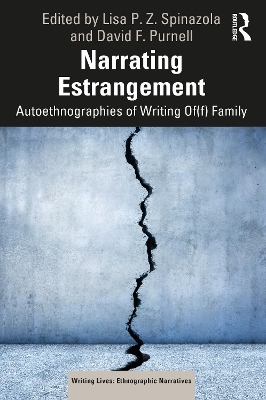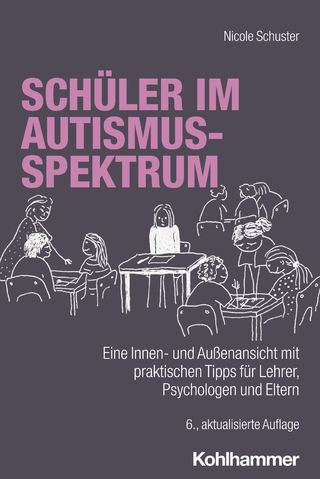
Narrating Estrangement
Routledge (Verlag)
978-0-367-64337-9 (ISBN)
Each contributor uses the act of storytelling and the autoethnographic mode of scholarship and writing to find clarity in their individual, unique, and complex situations. Several authors’ explorations restore some of what they have lost through estrangement—such as a sense of identity, emotional health and well-being, and feelings of belonging—due to the breakdowns in social and family support systems meant to be unconditional and "permanent." The stories display the wide array of reasons why family members become estranged, delving into different types of estrangement, permanent and/or intermittent. In doing so, the writers in this book demonstrate that family relationships are neither easily categorized nor neatly ended—their impact on an individual’s life continues and changes, even in and through estrangement.
This book adds to the ongoing scholarly conversations about family estrangement for students and researchers interested in autoethnography and qualitative inquiry, in a wide range of disciplines in the social sciences, healthcare, and communication studies.
Lisa P. Z. Spinazola is a visiting instructor at the University of South Florida. She uses autoethnography and narrative inquiry to research trauma, grief, family relationships, body image, and identity. Her current projects include adapting an in-person pedagogy of care to enhance remote/online learning and navigating persistent pain/health issues. David F. Purnell received his doctorate from the University of South Florida. He is a qualitative researcher whose research interests include shame culture effects on identity, food as communication, queering definitions of family, and ageism in the academy. His publications are mostly based upon an autoethnographic approach.
Inroduction Section One: Estrangement due to lingering effects of childhood neglect, abuse, or abandonment 1. Writing of, off, to, and from my mother: Moving forward, word by word 2. Estrangement: A Father/Son Love Story 3. A Series of @!?#@!? Events: A Journey to Mother-Daughter Estrangement Section Two: Estrangement due to family secrets, betrayal, or death 4. Complicating the experience of estranging from a sibling 5. Sister mine: Understanding family estrangement in siblings 6. Blood is thicker than water! 7. Traci(ng) Estrangement: Sisters, Secrets and Suicide Section Three: Estrangement resulting from the search for identity, belonging, or home 8. An Autoethnography of the Ongoing Impact of Parental Divorce and Estrangement 9. Too far out all my life…but not drowning 10. Our Real-Life Matilda Moment: Redefining and Finding Family Section Four: Estrangement initiated by another and out of our hands 11. Writing of(f) family: Sarah’s family hand-me-downs 12. My Mum is a Dreamer: Losing Family but Learning to Love 13. The Roots are Gone Too: An Autoethnography of Estrangement and/in Mourning Conclusion
| Erscheinungsdatum | 27.04.2022 |
|---|---|
| Reihe/Serie | Writing Lives: Ethnographic Narratives |
| Verlagsort | London |
| Sprache | englisch |
| Maße | 152 x 229 mm |
| Gewicht | 570 g |
| Themenwelt | Geisteswissenschaften ► Psychologie ► Familien- / Systemische Therapie |
| Medizin / Pharmazie ► Medizinische Fachgebiete ► Psychiatrie / Psychotherapie | |
| Sozialwissenschaften ► Kommunikation / Medien ► Kommunikationswissenschaft | |
| ISBN-10 | 0-367-64337-5 / 0367643375 |
| ISBN-13 | 978-0-367-64337-9 / 9780367643379 |
| Zustand | Neuware |
| Haben Sie eine Frage zum Produkt? |
aus dem Bereich


